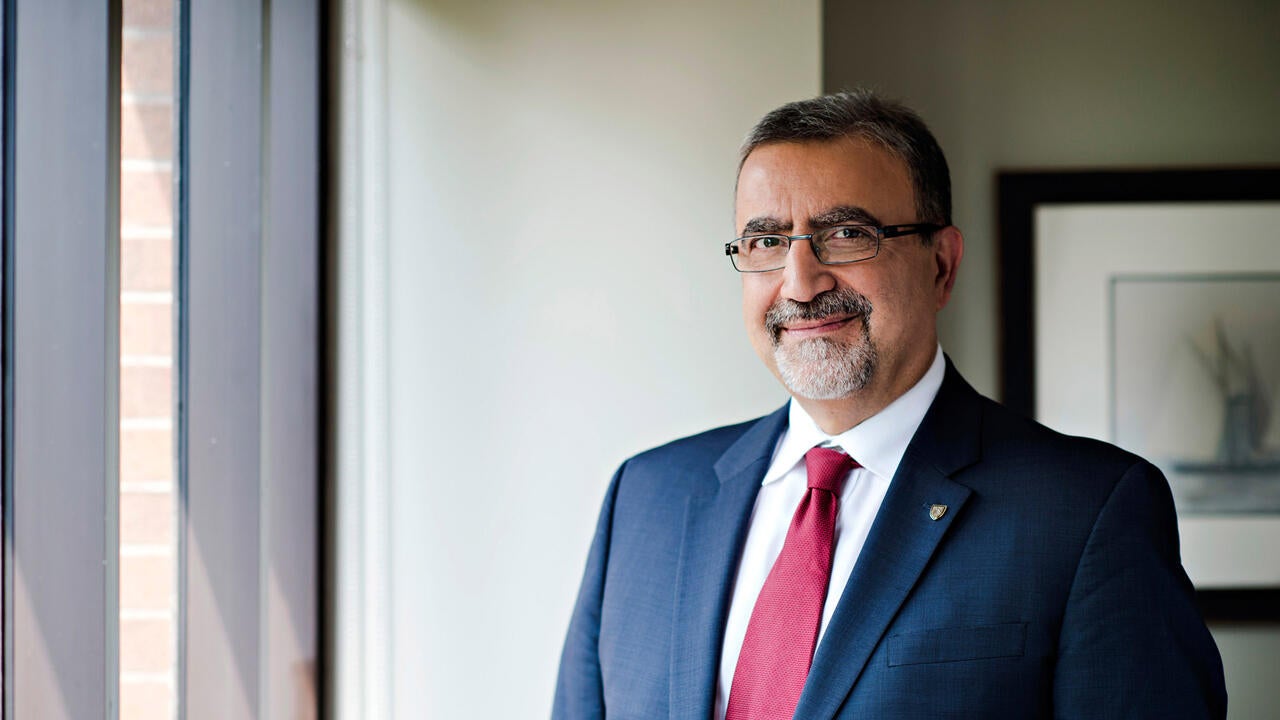
President shares Waterloo’s innovative culture in South Africa
Society needs to focus on developing creative citizens to help solve complex global challenges, says President Hamdullahpur

Society needs to focus on developing creative citizens to help solve complex global challenges, says President Hamdullahpur
By David Tubbs Office of the PresidentTo solve complex global challenges, society will need to focus on developing creative citizens rather than concentrating solely on new technologies, says Feridun Hamdullahpur, president and vice-chancellor of the University of Waterloo.
Hamdullahpur was speaking at the Dr. Richard Maponya Annual Lecture on Entrepreneurship at the Durban University of Technology in South Africa this week.
Hamdullahpur’s lecture revealed the potential for innovative post-secondary education to develop talent that will lead the future economy. The annual lecture is given in honour of Maponya, South Africa’s first black millionaire, who created a diverse business empire while battling the highly restrictive and divisive laws of South African apartheid.
Hamdullahpur began his lecture, entitled “Fostering Talent That Will Lead the New Economy” by detailing the challenges business leaders and society are now facing, mentioning the rise of disruptive technologies like artificial intelligence (AI) and the internet of things; the socio-political pressures of an aging population in the West and the shifting of economic power centres.
He urged the audience to not focus on technology development alone for solutions to society’s growing challenges. Instead, Hamdullahpur urged the development of innovative and creative citizens through experiential learning opportunities and encouraging students to establish a strong connection with the world outside of university.
Sharing the benefits of work-integrated learning
The day following Hamdullahpur’s address, July 18, 2018, marked what would have been the 100th birthday of Nelson Mandela, South Africa’s first democratically elected president, who died in 2013.
While delivering the opening keynote address at the 3rd Annual Work Integrated Learning Africa Conference (WIL-Africa) on the same day, Hamdullahpur expressed the privilege of being in South Africa during a day of national remembrance.
Hamdullahpur went on to share the University of Waterloo’s successes with co-operative education during his keynote address, highlighting the broad range of benefits co-op offers students, employer partners and in its role in developing an innovative environment for future leaders.
“Co-op has the potential to fundamentally transform not only a university, but society as a whole,” said Hamdullahpur. “The University of Waterloo has been gifted a foundation with co-operative education and a spirit of entrepreneurship firmly ingrained in our DNA and I am proud to be able to share our experiences beyond our borders.”
The South African Society honoured Hamdullahpur with the Leadership Excellence Award for Cooperative Education (SASCE) during the WIL-Africa conference for his contributions to the development of co-operative and work integrated education globally.

Read more
Here are the people and events behind some of this year’s most compelling Waterloo stories

Read more
Meet five exceptional Waterloo graduate students crossing the convocation stage as Class of 2025 valedictorians

Read more
Meet the 14 exceptional students representing Waterloo’s newest grads
The University of Waterloo acknowledges that much of our work takes place on the traditional territory of the Neutral, Anishinaabeg, and Haudenosaunee peoples. Our main campus is situated on the Haldimand Tract, the land granted to the Six Nations that includes six miles on each side of the Grand River. Our active work toward reconciliation takes place across our campuses through research, learning, teaching, and community building, and is co-ordinated within the Office of Indigenous Relations.